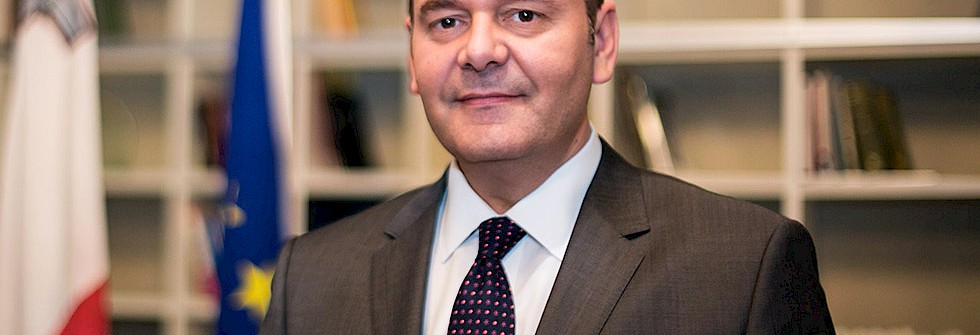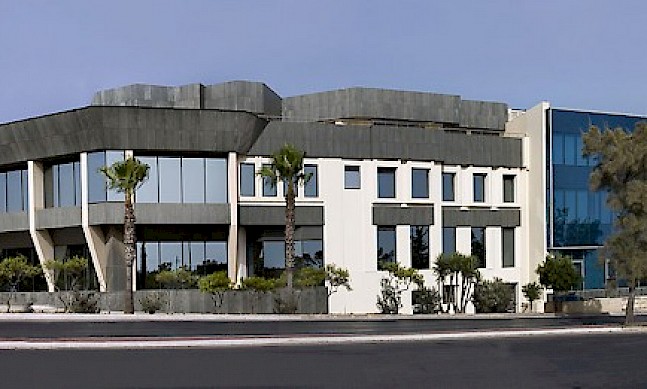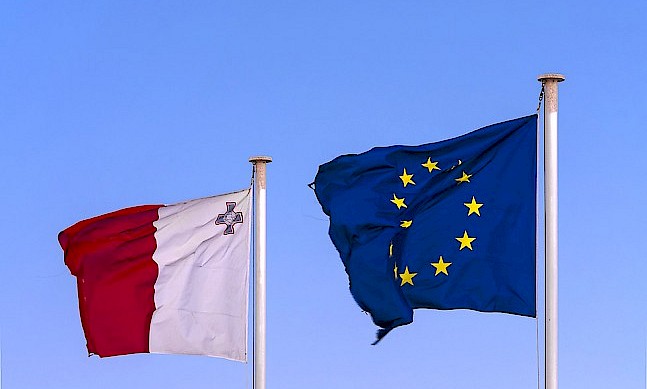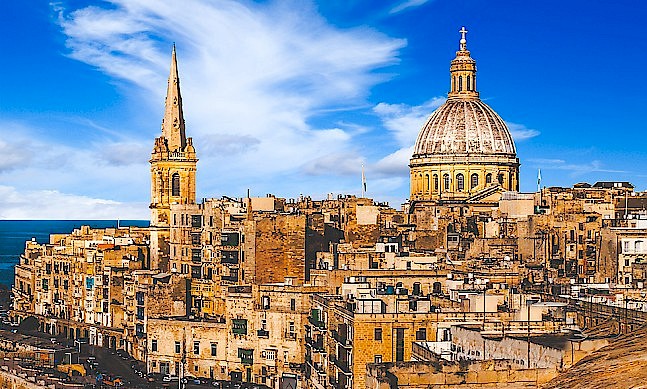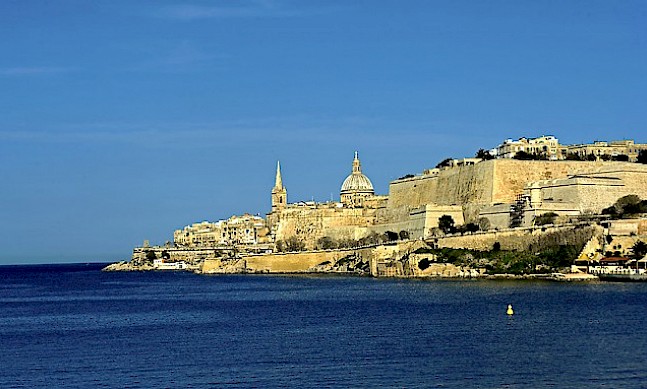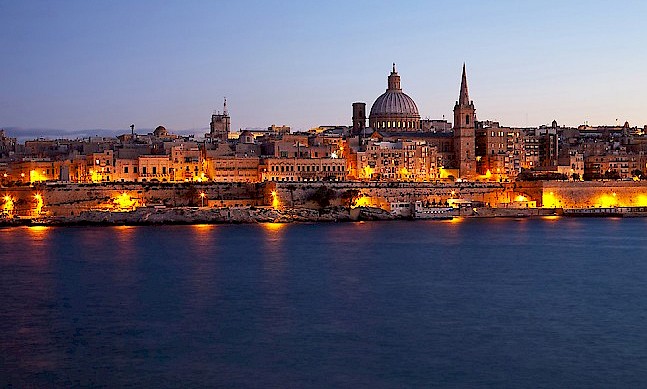A lawyer by profession, Christian Cardona took up the post of economy minister in 2013. Since then, he has striven to maximise all the available opportunities Malta’s small yet highly diversified economy has to offer. The Report Company met with him to find out more.
The Report Company: How would you appraise the current situation of the Maltese economy?
Christian Cardona: Last year was another successful year for the Maltese economy which continued to be amongst the top performers in the euro area and the European Union, both in terms of economic growth as well as labour market outcomes. Indeed, Malta’s real GDP growth stood at 3.5 percent in 2014, up from the rate of 2.7 percent recorded a year earlier. The main driver for this growth was the sustained increase in domestic demand, supported by strong investment and a spur in private consumption. Total employment grew by 3.1 percent in 2014, which is well above the 0.6 percent and 1.1 percent recorded for the euro area and EU average, respectively, and reflects efforts in ongoing active labour market policies. This performance in the labour market was reflected in a historically low unemployment rate, standing at 5.9 percent; amongst the lowest in the EU.
In addition, Malta has for the second consecutive year managed to attain its fiscal targets. The government took effective action to bring down the deficit below the three per cent threshold by the end of 2013, a year prior to the deadline set by the European Council, but in line with the Maltese government’s projections. Malta reached a deficit of 2.1 per cent of GDP in 2014.
I also want to add the rating given to Malta by Standard and Poor’s, which has revised its outlook on Malta to positive from stable while maintaining the BBB+/A-2 rating.
The agency said it expected the economy to grow by close to three per cent annually between 2015 and 2018, outpacing the euro zone as a whole.
TRC: What sectors will be the key drivers of the country’s economic growth?
CC: Economic growth is attributed to investments in the energy sector, including the interconnector and the building of a liquefied natural gas terminal and power station.
Economic diversification after 2016 into information and communication technology and medical tourism, could boost investment.
We are aware that there is a lot of competition out there. However, we should never forget the reasons why Malta is the place to do business. We have a pro-enterprise culture, a sound legal system, we are a reputable location and regulation is robust but there is flexibility too. Political consensus on enterprise adds to business confidence.
We have the English language and our communications are first class. This is a safe society with excellent health and education facilities. And, of course, we don’t stand still. We are investing for the future, developing an energy hub, promoting a University incubator to turn ideas into reality, and bringing in new talent through the individual investor programme.
“We have a pro-enterprise culture, a sound legal system, we are a reputable location and regulation is robust but there is flexibility too.”Tweet This
This government is working to consolidate those sectors that already have a sound presence in Malta, like engineering and pharmaceuticals, whilst trying to explore new opportunities like in bio-technology and education services.
The Life Sciences Park in San Gwann, for example, will provide a lot of opportunity for the life sciences sector to grow. But there is also aviation, which is doing very well, and aviation services companies in Malta have been expanding during the last year.
Other interesting opportunities might arise in the near future in the maritime sector, especially with the development of the maritime hub, and the logistics sector. There is still a lot of works in progress but the signs are very positive.
TRC: Which investor markets are you targeting?
CC: We have been working hard towards a strategy of diversification and tapping into markets outside of the European Union. We have also been assisting business to start trading in other continents such as Africa and Asia.
TRC: What incentives are available for investors?
CC: There is a lot of competition out there, yet we are also aware of what our competitive advantages are. So, the best incentives are not of a fiscal nature – even though one must stress that labour costs in Malta are still relatively low compared to some of our direct competitors – but in our human resources: workers that easily adapt to the needs of industry, with a high level of education, skilled and English speaking.
Investors in Malta know that here they will find a stable, favourable economic and political climate which will reward their industriousness. We have a long history of FDI in Malta and that experience is also an asset which we can transform to attract more foreign investment towards the country.
Then there is also the geo-political aspect which should not be ignored. It offers challenges and opportunities. We like to think about Malta as a bridge between Europe and other continents, particularly North Africa and the Middle East. It must be also said that the interest shown in Malta by China and the United States lately is also very encouraging.
There are a number of projects that are targeted to materialise soon and in due time we will be announcing them. But one must also note the number of expansions that we are having from industries that are already here. This is a very good sign that there is trust in the economy and willingness for companies here to continue growing and investing in their operations here. This in itself is an incentive to attract further investors towards the country.
TRC: What moves is Malta making to position itself as a centre for intellectual property and knowledge-based industries?
CC: There’s one thing I understand well as the minister for the economy. We need to constantly revitalise what we do, seize opportunities, show ingenuity and embrace change. The world never stands still, and nor should we. Intellectual property and knowledge industries are fast becoming the movers of the European and global economy. Studies suggest that nearly 40 per cent of total EU economic activity is generated by IP rights-intensive industries.
Malta continues to promote and nurture information and communications technology and knowledge-based industries, creating incentives for innovation, research and development.
It is this government’s policy to encourage enterprise and innovation, and intellectual property can be an important element of the success of a business. Last year, we launched an initiative in close collaboration with the private sector, with the objective of undertaking a series of studies which we hope will result in solid proposals for reform, and eventually legislation which will help raise Malta's attractiveness in the IP industry and make Malta the IP hub we want it to be.
TRC: What is the government doing to boost Gozo’s attractiveness and bring it up to the same level as Malta?
CC: As it is, Gozo, Malta’s sister island, faces problems of double insularity, for movement of people, import, export, and other economic activities which are vital for the island’s quality of life and economic performance. Gozo’s situation is more accentuated than Malta, due to its ‘double insularity’.
Over the years various sectors have been given attention so as to make Gozo more attractive and economically competitive. The tourism sector is being enhanced as a result of various rehabilitation, restoration and upgrading projects. Other funds have been invested in the road infrastructure to facilitate accessibility from one village to another and from one island to the other. EU funds are also being used to improve environmental monitoring and rehabilitation of landfills, along with the installation of environmentally-friendly equipment using natural resources to generate energy for domestic and commercial use.
Gozo is included in this government’s plans. As an example, Barts Medical School will be establishing their first overseas campus in Gozo while a €200 million investment by the private sector is expected to transform the Gozo General Hospital (GGH) and St Luke's Hospital in Guardamangia into medical hubs. Both Malta and Gozo are being considered for their potential to develop as a regional medical and healthcare hub as well as a hub for educational and training services.
TRC: How important is it to your government to reduce bureaucracy?
CC: It was one of this government’s priorities to cut on the bureaucratic red tape. So much so that the government even created the post of commissioner for the reduction of bureaucracy in order to tackle this challenge. It is a daunting task, since whole processes, some even established by law, need to be reassessed and valuated.
From the business side we have restructured Business First, the one stop shop for businesses at Malta Enterprise, added new services and are investing in it even strategically in order to make it more accessible to business locally.
We have also done a good deal of work at Malta Enterprise, especially to cut on the time of projects approvals. We are well aware that time is a crucial factor when it comes to the decision of whether to invest in a country or not.
TRC: How is entrepreneurship being promoted?
CC: SMEs employ a good number of people, but they are important not only for employment reasons but also for the services they provide to industry.
It is within our strategy to boost their importance and to promote new areas where SMEs can flourish and contribute to society, not just economically but also socially, as in artisanal and social enterprise. For this we are also thinking in terms of assistance particularly to invest in equipment and labour. We also have a new scheme to assist companies that want to obtain certification to improve standards especially if targeting to expand towards foreign markets.
We are creating stronger links between Business First and SMEs, so that they feel that Business First belongs to them.
“We provide a business-friendly climate where an entrepreneur has easy access not just to services related to industry but also to the decision maker.”Tweet This
TRC: What are Malta’s competitive advantages as a jurisdiction?
CC: Human capital is of paramount importance. Also consider flexibility; not just by means of the adaptability of the workforce to new challenges but of the country per se to welcome new investment and believe in it. That is why we have seen sectors like digital gaming and aviation services thriving in a relatively short time.
We provide a business-friendly climate where an entrepreneur has easy access not just to services related to industry but also to the decision maker. Here even the minister is just a phone call away. In fact, we know many investors by name, they come over, we discuss and this facilitates the way we can meet their demands to help them set up shop here in Malta.
I think that something else, which may appear peripheral but is not, is the general lifestyle on the islands. This isn’t just a place to work in but also a place where you enjoy living and that is very important, especially for someone who has to transfer himself and his family to work. We have a very sound educational system, we have culture, entertainment, a good transportation network; all this contributes to make Malta more attractive to an investor.
Furthermore, today Malta has very advanced digital network connectivity, one of the most advanced in Europe. When it comes to maritime and airborne connectivity, Malta is very well connected with the rest of Europe and also North Africa and the Middle East. This must surely give us a competitive advantage upon other competitors who do not share our advantageous position.
TRC: What would you like people to understand about Malta?
CC: I think that the fact that so many tourists visit our country every year and the fact that so many companies choose to relocate to Malta says a lot in itself.
Malta’s business-friendly and economically stable environment remains conducive towards doing business particularly thanks to its competitive cost structure with relatively low social and labour costs, connectivity, and the availability of an attractive incentives package. The latter includes assistance to encourage further investment, access to finance, assistance towards training of the workforce, as well as other schemes to encourage R&D, innovation and competitiveness. Malta’s highly-skilled and English-speaking workforce is also quick to adapt in order to overcome the challenges it faces and take up the new opportunities being created, thus enabling companies to have business success.


